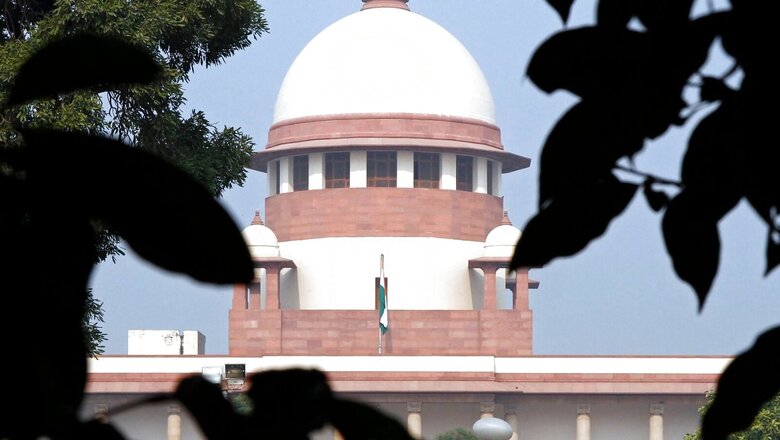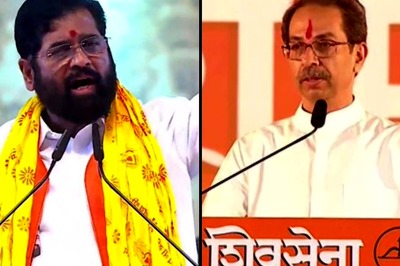
views
Union finance minister Nirmala Sitharaman allocated Rs 7,000 crore to the third phase of the eCourts projects while announcing the Union Budget 2023 on Wednesday. This is a major thrust for a tech-powered future for the Indian judiciary, which is already undergoing a move to a virtual justice system spurred by the Covid-induced lockdown.
“For efficient administration of justice, Phase III of the eCourts project will be launched with an outlay of Rs 7,000 crore,” said Sitharaman, while introducing the union budget for 2023-24.
The ambitious eCourts project of the law ministry was devised by the eCommittee of the Supreme Court, and is being overseen by Chief Justice of India DY Chandrachud.
According to the vision document of the project, the third phase envisions a judicial system that is more accessible, efficient and equitable for every individual seeking justice, or is part of the delivery of justice, in India.
“It envisions an infrastructure for the judicial system that is natively digital. It does not merely digitise paper-based processes, it transforms processes for a digital environment. Phase III will enable any litigant or lawyer to file a case from anywhere, at any time, without having to go to multiple windows in the premises of any specific court,” the vision document read.
The project seeks to create a reality in which lawyers and litigants can effectively plead their cases with certainty of hearings, and judges are able to adjudicate fairly through optimal hearings: video or audio, in-person or in writing, synchronous or asynchronous.
The third phase has certain key components:
- Digital and paperless courts aim to bring court proceedings under a digital format in a court, thereby, limiting the use of paper and speeding up disposal of cases
- Online courts will focus on eliminating the presence of litigants or lawyers in the court, expansion of scope of virtual courts beyond adjudication of traffic violations
- Use of artificial intelligence and machine learning will allow for data analysis to work towards reduction in pendency and understanding litigation patterns, forecasting future needs and so on
- A total of 4,400 fully functional eSewa Kendras will provide assistance to all lawyers and litigants
- Live streaming of court proceedings will allow for further transparency in judicial proceedings
- Digitisation of court records will serve to pave the way for a completely paperless environment in future
- Online platform for dispute resolution will encourage alternate dispute resolution and a robust video conferencing system will create seamless connectivity between jails and courts, allowing for all bail appearances over video conferencing.
“Unprecedented – allocation to create paperless courts for faster delivery of justice. I thank PM Narendra Modi ji and FM Nirmala Sitharaman ji for timely announcing critical eCourts Phase-III Project with an outlay of Rs 7,000 Cr in Budget for 2023-24,” tweeted law minister Kiren Rijiju.
Unprecedented – allocation to create paperless courts for faster delivery of justice. I thank PM @Narendramodi ji and FM @NSitharaman ji for timely announcing critical eCourts Phase-III Project with an outlay of Rs 7000 Cr in Budget for 2023-24. pic.twitter.com/f7P9fNMoNL— Kiren Rijiju (@KirenRijiju) February 1, 2023
He added: “This will ensure “Ease of Justice” and further improves the justice delivery system that the Hon’ble PM has always envisioned.”
The law minister went on to thank CJI Chandrachud, who has been overseeing the project as the head of the eCommittee of the SC.
“I also compliment the Hon’ble Chief Justice of India, Dr DY Chandrachud ji who as the Chairperson of the eCommittee of the Supreme Court of India has been instrumental in the success of the earlier phases of the eCourts Project and who personally supervised and mentored the formulation of the DPR of the Phase-III of the Project,” he said.
Read all the Latest Business News and Budget Live Updates here




















Comments
0 comment